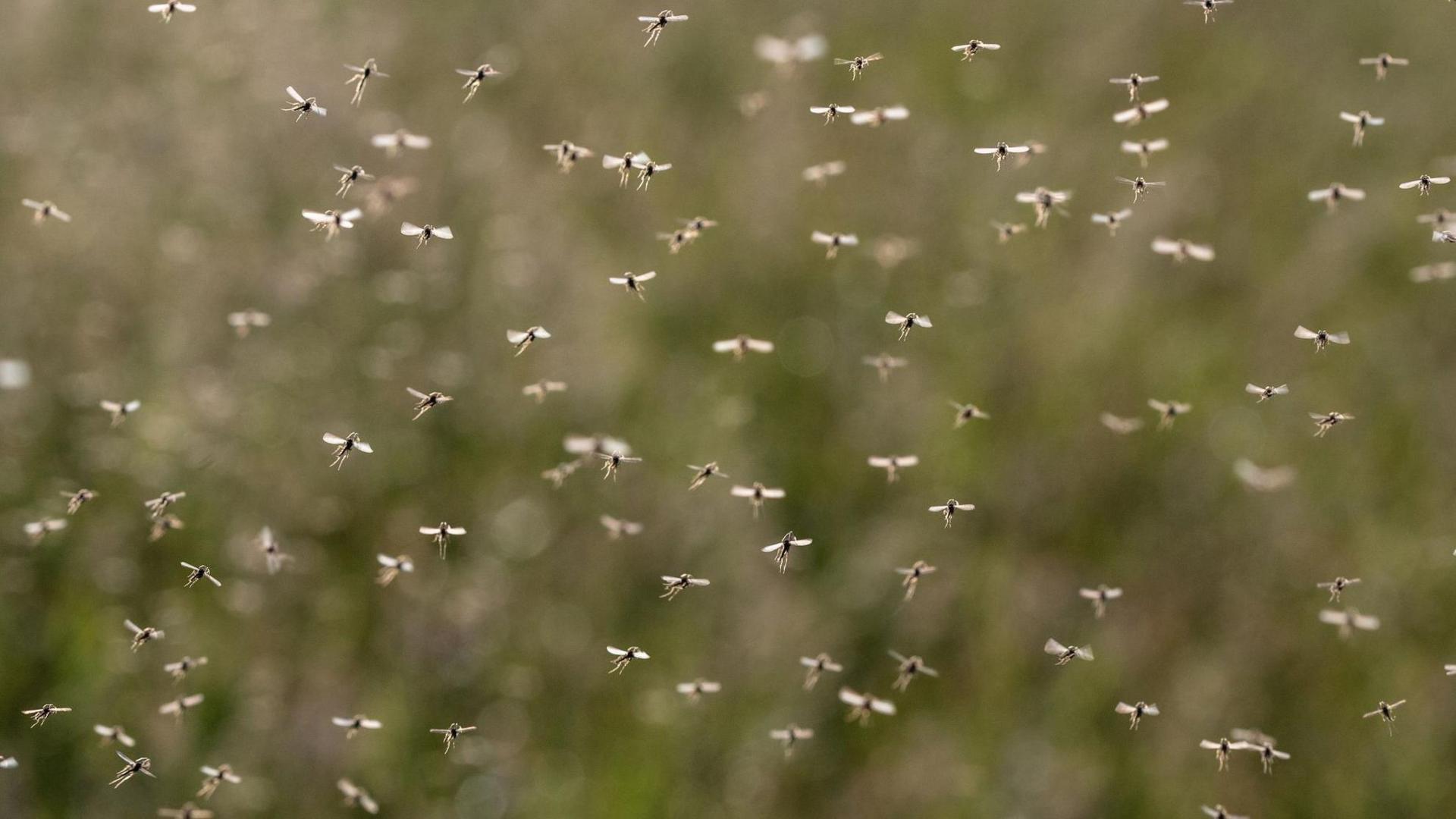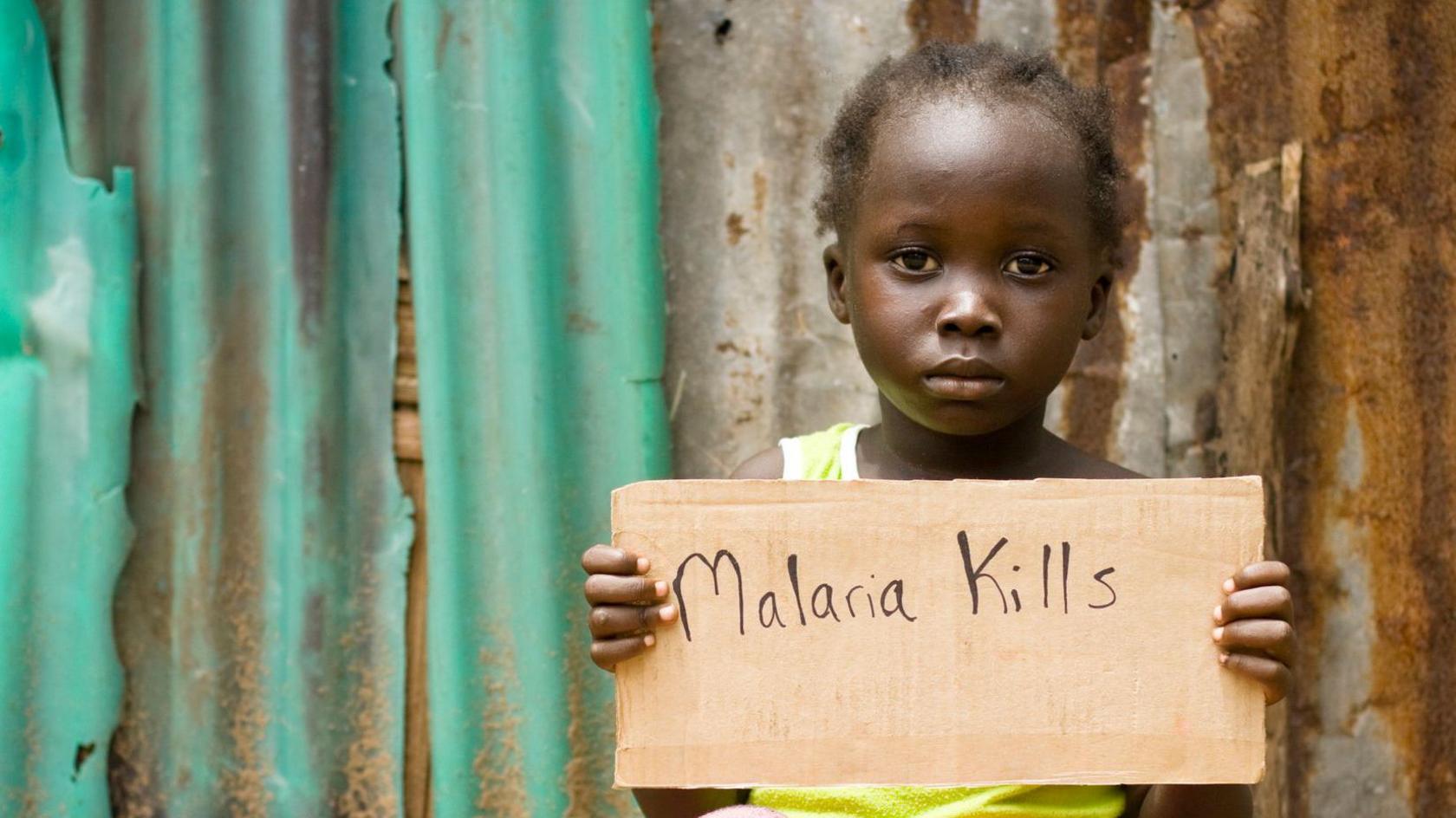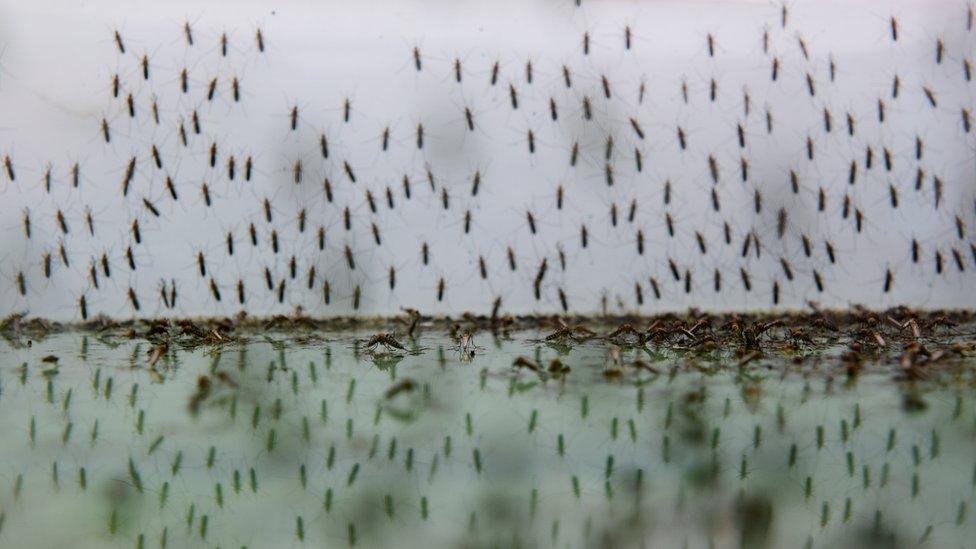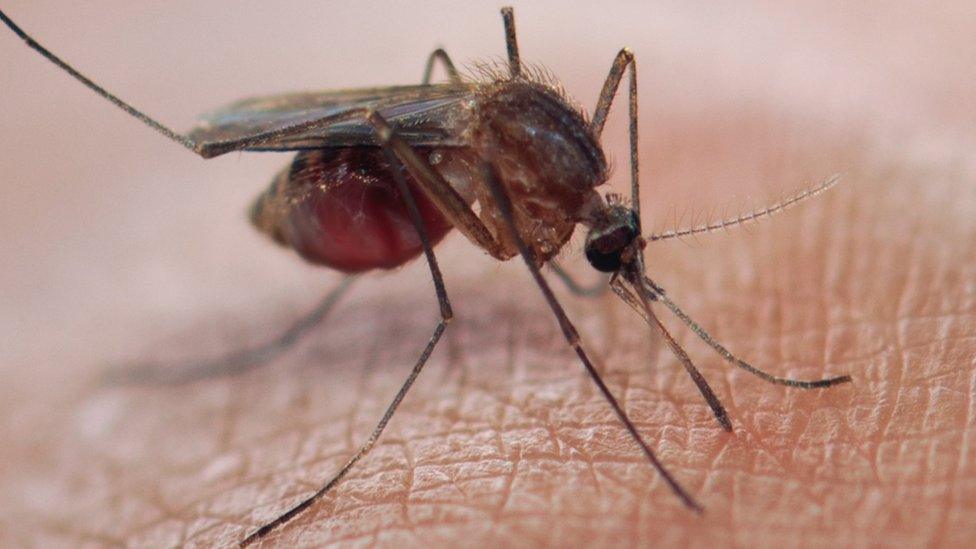Urgent action needed as malaria resists key drug

A swarm of mosquitoes, the insects that spread malaria when they drink blood
- Published
Millions of lives are at risk unless urgent and radical action is taken to stop drug-resistant malaria spreading in Africa, scientists warn.
Malaria parasites that can shrug off the effects of the critical drug artemisinin are now well-established in East Africa.
Resistance levels have soared in some areas from fewer than 1% to more than 20% of cases in the space of three years.
The last time resistance to an antimalarial spread in Africa it led to a tripling in the number of children dying.
Twenty-eight leading malaria scientists from 10 countries have made the call to action in the journal Science., external
Artemisinin kills the malaria parasite and is the cornerstone of treatment.
Parasites that could resist artemisinin evolved for the first time in Africa in Rwanda, and then separately in Uganda and Eritrea.
These resistant parasites have spread within their countries and across borders.
Now, more than 10% of malaria cases are caused by resistant parasites in Ethiopia, Eritrea, Rwanda, Uganda and Tanzania.
“Now is the time to act before millions of people die due to increasingly ineffective antimalarial treatments,” said Prof Olugbenga Mokuolu, from the department of paediatrics at the University of Ilorin in Nigeria.

In 2016, resistant strains were hardly being detected in northern Uganda. By 2019, more than 20% of parasites tested were resistant in several regions.
The group of scientists say the further spread of these resistant parasites is "inexorable".
Dr Mehul Dhorda, from the Mahidol Oxford Tropical Medicine Research Unit in Thailand, told me it was still uncertain how quickly that would happen.
However, something similar has already played out in South East Asia, where artemisinin-based treatments started to fail.
"The time from first detection to when it was overwhelmingly prevalent was 10 to 15 years," he said.
Lessons from history
A similar story has happened before. The parasite became resistant to a previous drug - chloroquine - in East Africa in the 1970s, and resistance reached the west coast by the 1980s.
Malaria deaths on the continent trebled from about 493,000 in 1980 to 1.6 million by 2004.
"I’m hoping this is not something we will see in Africa," Dr Dhorda told me.
"If artemisinin combination therapy starts failing, then cases and deaths will go up."
The authors have made a series of recommendations targeting both the parasite and the mosquitoes that spread the disease.
They suggest adding a third drug to the artemisinin combination therapy to make it harder for the parasite to evolve resistance to therapy.
Dr Dhorda says this will cost money but: "We might spend a little more now, but if not we'll be spending a lot more to control the fire rather than putting it out before it became widespread."
They also call for:
Expanded coverage of insecticide-treated bed nets and long-acting insecticides that are sprayed in people's homes
Target the newly developed malaria vaccines to people of all ages (rather than just children) in areas with artemisinin-resistant malaria
Supporting community health workers, so treatment is available close to everyone's home
Ensuring data on the spread of resistant strains is shared rapidly, because at the moment there can be long delays
“We ask funders, specifically the Global Fund to Fight Aids, Tuberculosis and Malaria and the US government’s President’s Malaria Initiative, to be visionary and to step up funding for malaria control and elimination programmes to contain the spread of artemisinin resistance in Africa,” said Ntuli Kapologwe, director of preventive services at the Ministry of Health in Tanzania.
- Published6 August 2020

- Published23 July 2019
